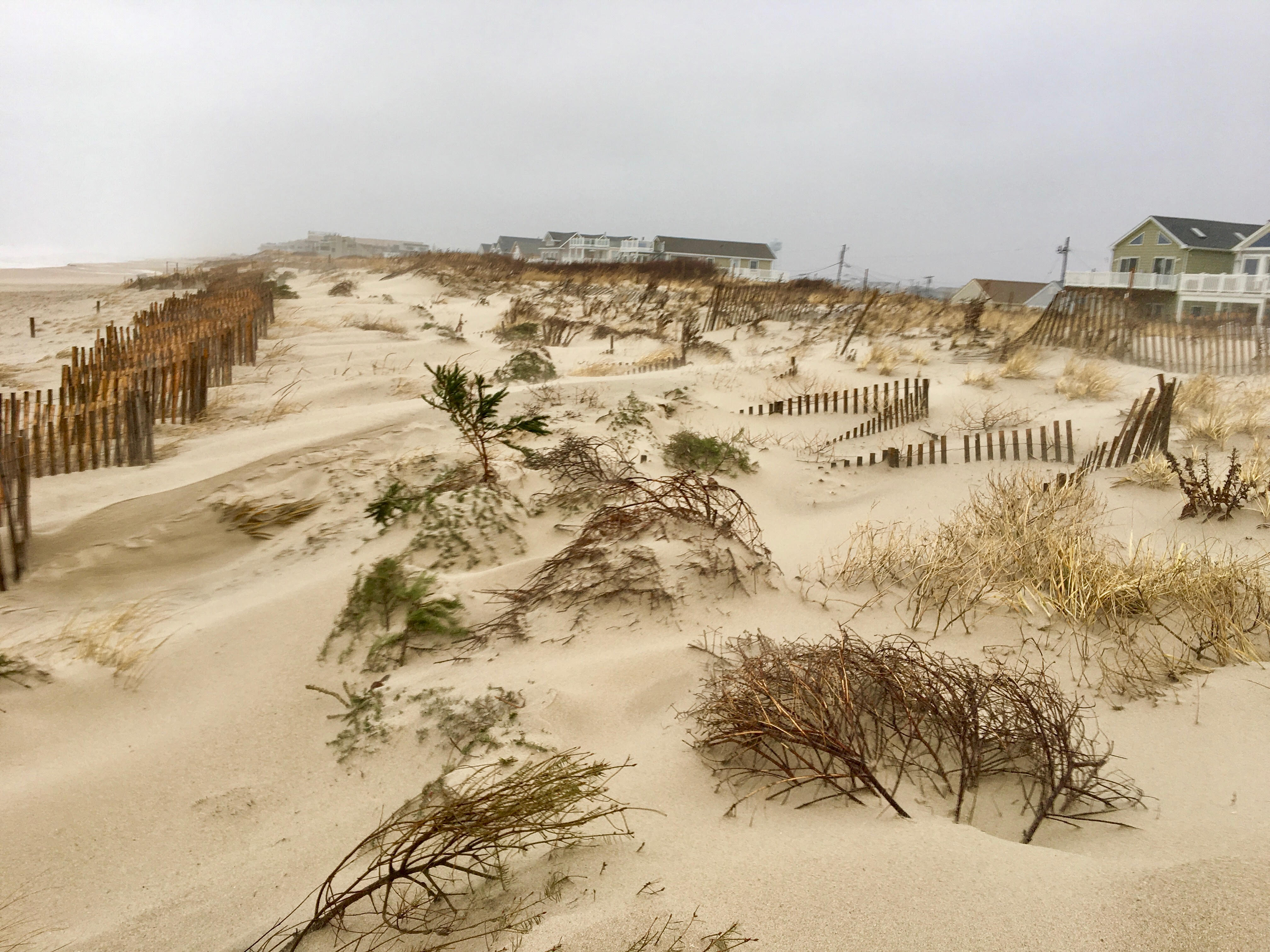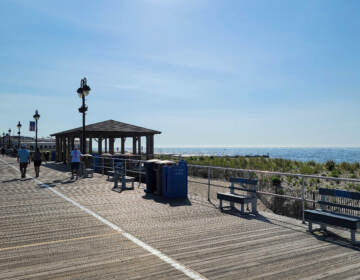Island Beach State Park receives 2,000 Christmas trees: Here’s how it helps the dunes
While their season is now over, Christmas trees will have a second life by helping build up dunes in Ocean County's Island Beach State Park.

Newly placed Christmas trees buried in South Seaside Park dunes amid a nor'easter in 2017. (Image courtesy of Dominick Solazzo)
While their season is now over, Christmas trees will have a second life by helping build up dunes in Ocean County’s Island Beach State Park.
The state park received more than 2,000 Christmas trees from homes near and far on Saturday, according to the New Jersey Department of Environmental Protection.
Officials were aiming for 200.
They’re now seeking volunteers to join forces at 8 a.m. on Saturday, January 11 to place the trees in the dunes. Event information is available here.
How it works
According to coastal ecologist Dominick Solazzo, Christmas trees trap sand that is blowing toward the dunes with northeasterly winds during coastal storms.
“Wind blown sand becomes obstructed by the fencing and deposited as its velocity slows. The combination of dune fencing and natural vegetation adds the strength of resistance to the dune like rebar to concrete,” Solazzo said in a 2014 WHYY interview. “As easily as a healthy and well-managed dune grabs the sand, it also easily resists any erosional pressure put on it by the same force that helps it grow.”
He says a special relationship forms over time, resulting in greener and taller dune grass as the trees provide provide nitrogen and other nutrients to feed the grass and also store moisture during the summer months.
But while it works for Island Beach State Park, Solazzo cautions that it’s not the solution for everyone.
“Using Christmas trees to help with dune restoration can be useful but is not the answer in coastal communities where there is a history of moderate to severe coastal erosion,” he said.
WHYY is your source for fact-based, in-depth journalism and information. As a nonprofit organization, we rely on financial support from readers like you. Please give today.




